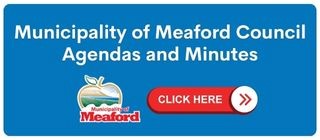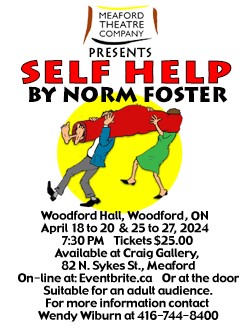By Stephen Vance, Editor
 One of the most frequent complaints about Meaford’s council that I have heard over the last several years is that council spends too much time behind closed doors.
One of the most frequent complaints about Meaford’s council that I have heard over the last several years is that council spends too much time behind closed doors.
With Councillor Deborah Young this week suggesting that our council has been abusing the in-camera meeting process, the issue has once again reared its ugly head, and tongues are once again wagging.
The issue is not a simple one.
Ontario’s Municipal Act outlines very specific criteria for a municipal council to meet behind closed doors, and frankly, though we would all like to know exactly what our elected representatives are discussing at all times, there are often issues which for reasons of confidentiality can only be discussed away from the public eye.
Legal updates, staff issues, discussion of potential land sale or transfer are all items that involve a certain amount of confidentiality, and so a municipal council simply cannot discuss such items in an open meeting.
That leaves the ratepayers who elect those representatives in a position of having to trust that councillors and the senior staff of this municipality will follow the rules, and not conduct meetings behind closed doors unless absolutely necessary.
The obvious problem though, is that we can never know if the process and spirit of the law is being respected by members of council, making it all the more uncomfortable when a councillor breaks ranks and states publicly that they feel that section 239 of the Municipal Act is being violated.
What was more concerning is that not only did Councillor Young suggest that council is meeting behind closed doors unnecessarily, but that in her opinion, a culture of back-room politicking has developed on this council. Specifically Young said that members of council are communicating via email to garner support for various resolutions.
Which begs the question; what constitutes a meeting of council?
In this modern age, email and other forms of electronic communication have become commonplace. The Municipal Act states that if you have a quorum of councillors participating in a discussion about council related issues, then that constitutes a meeting of council.
And while Mayor Francis Richardson concedes that this is a grey-area, he insists that there is nothing wrong with sending information by email to members of council for consideration prior to a meeting.
The Mayor is right of course, but what if four or five members of council engage in back and forth discussion about an issue via email? Does that not constitute a meeting of council?
They may not be in the same room, they may not even all be in town, but if a quorum of councillors engage in an electronic discussion, how is that any different than if they were sitting around the wooden horseshoe on the 7th Line?
Mayor Richardson told reporters on Monday night that the municipality has asked officials from the Ministry of Municipal Affairs and Housing to shed light on the issue in the past, and that they will be asking them again.
Richardson stressed that decisions are never made via email, and there is no reason to doubt that. But if back and forth discussion takes place via email, it is reasonable to assume at the very least that the opinion of a member of council will be formed during those email exchanges that will influence their vote. Out of simple respect for those they represent, those discussions should take place publicly at the council table, not behind the wall of electronic communication.
I would suggest that given that the door has been opened by Councillor Young with regard to this issue, council would be wise to schedule a public meeting with a representative from the ministry in attendance in order to engage in an open discussion not only about when council can meet in closed session, but also how councillors are permitted to communicate outside the council chamber, and at what point an actual meeting is deemed to have taken place.
We may find that it is perfectly acceptable for councillors to engage in discussion and debate via email messages without having to declare a closed session meeting. On the other hand, we may find that as technology has progressed councils need to reconsider how modern communications has brought official meetings of council outside of the chamber and into their home offices or kitchen tables.
For the sake of all involved, it would be beneficial to publicly open up discussion, and to have the opinion of the Ministry itself expressed so that everyone is clear.









